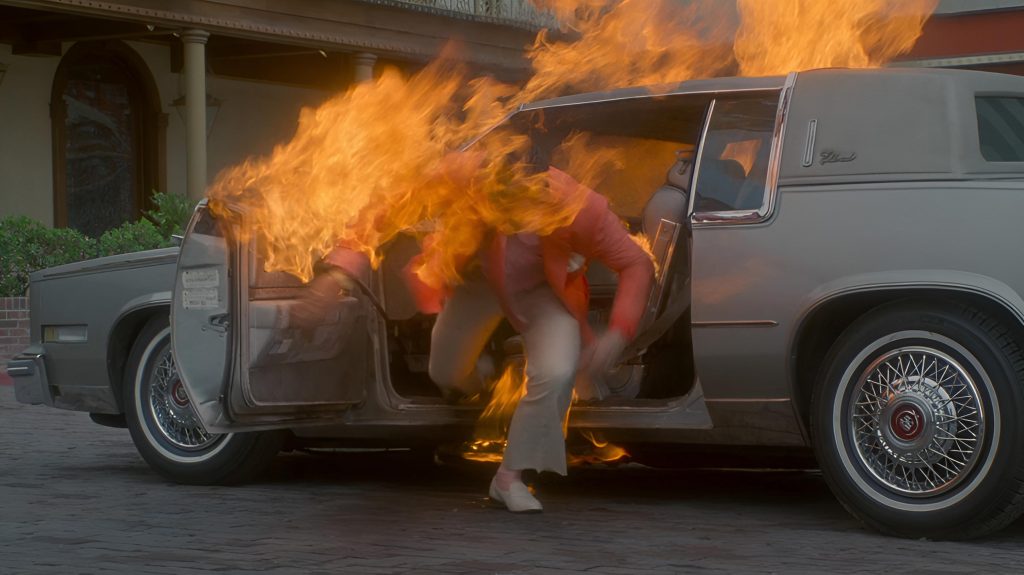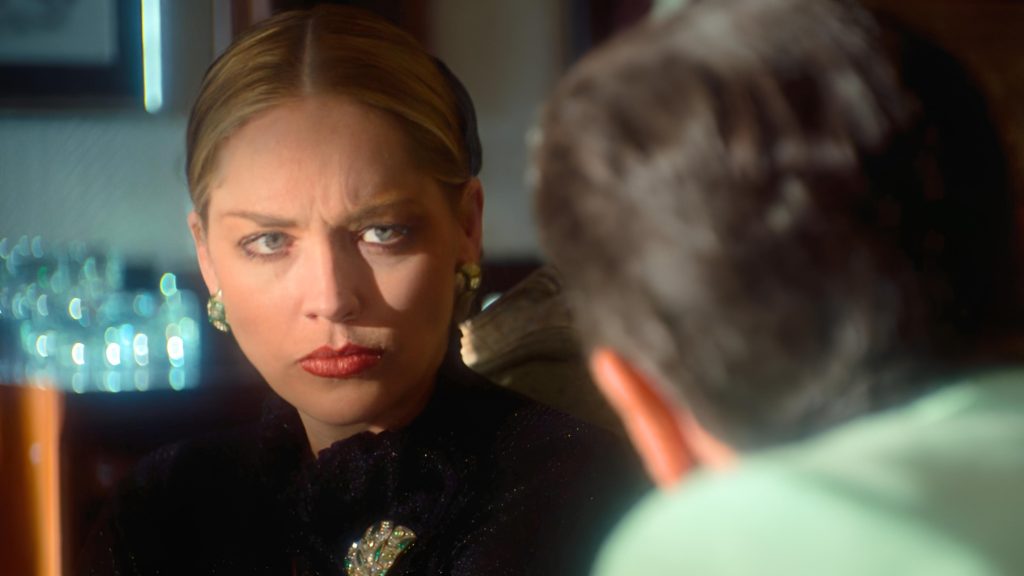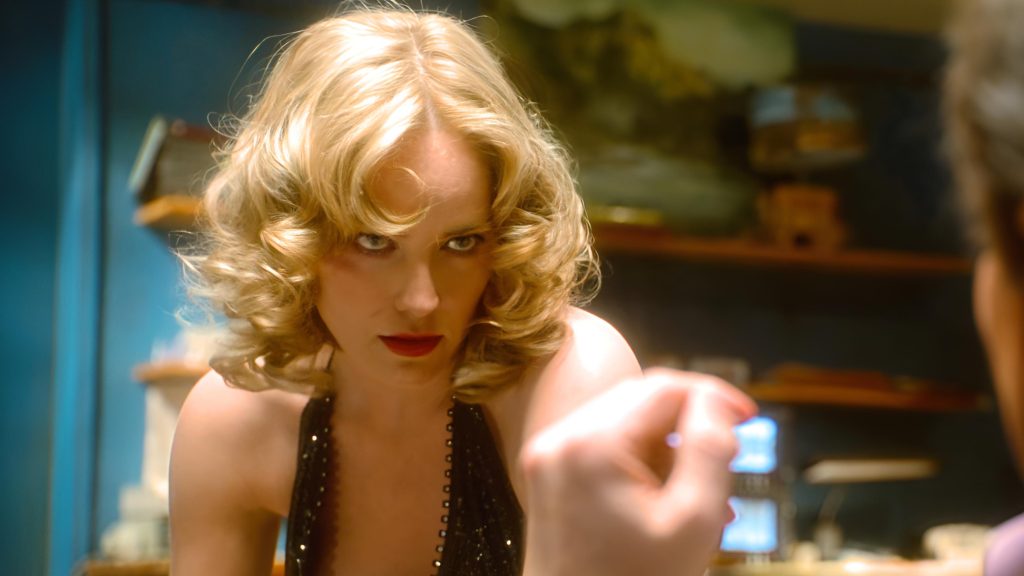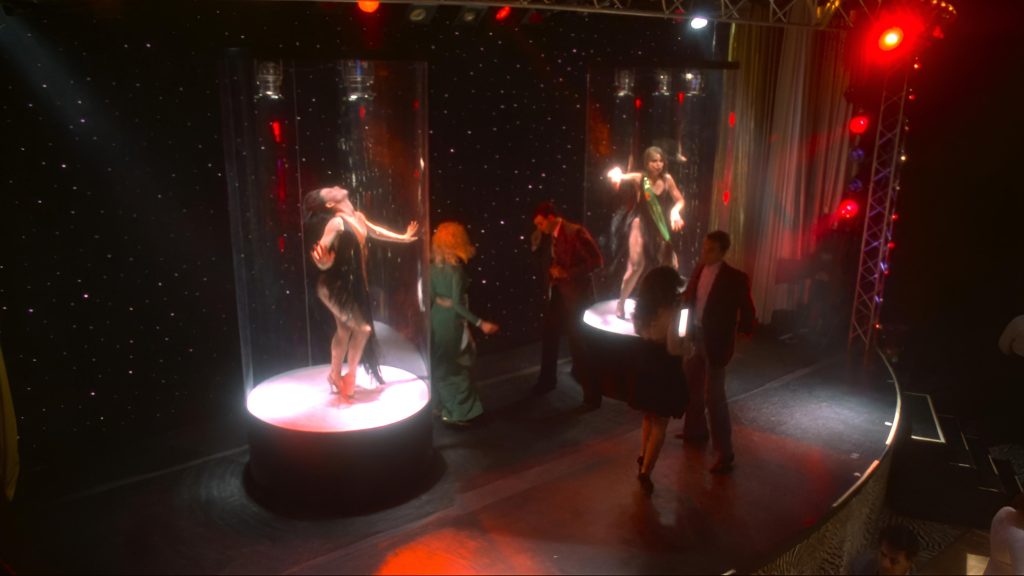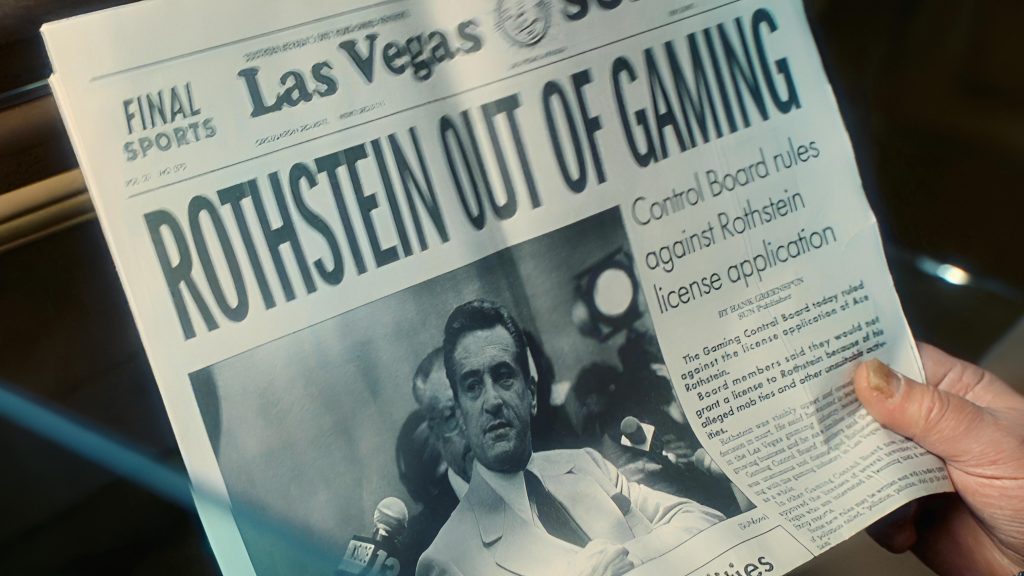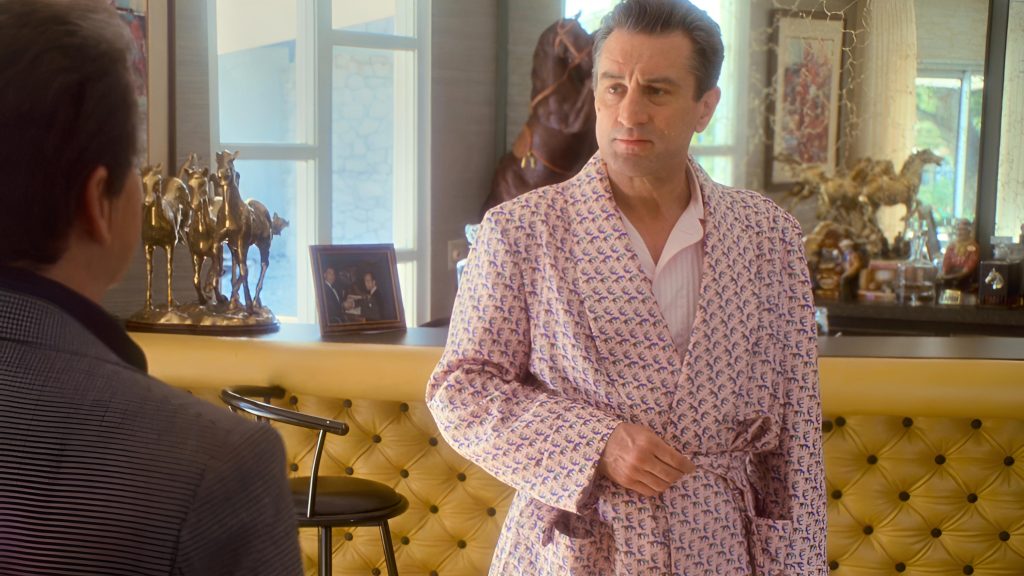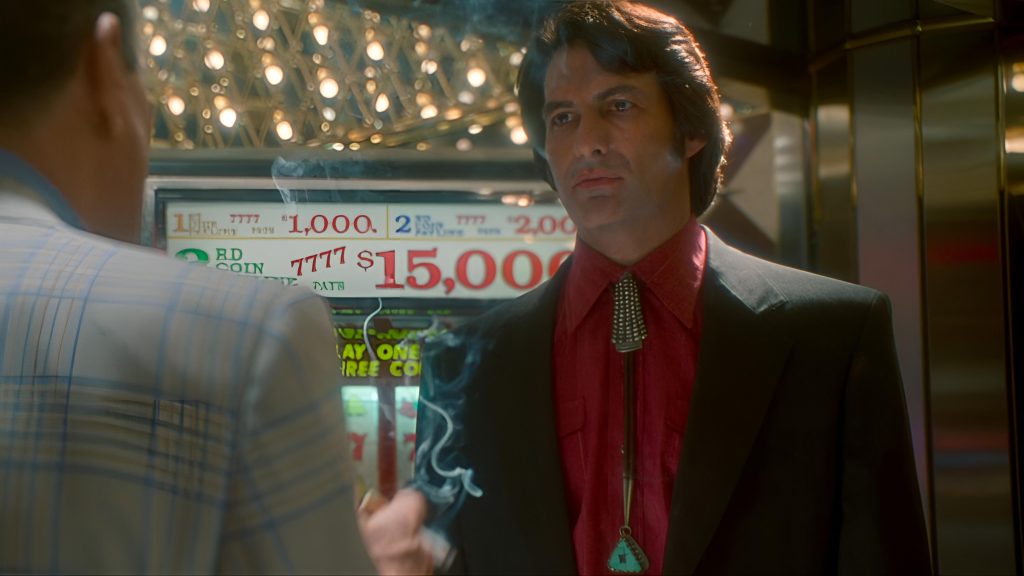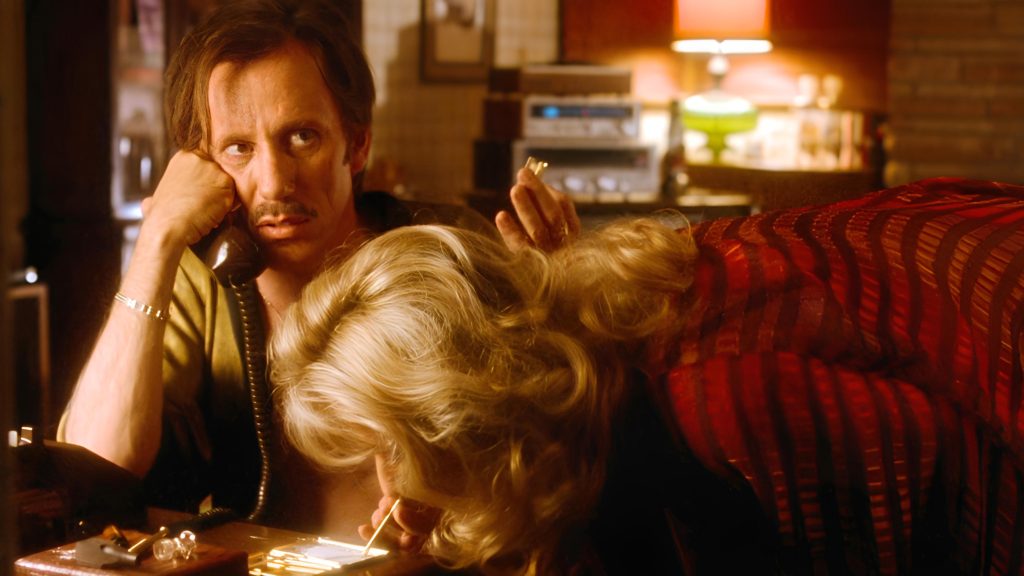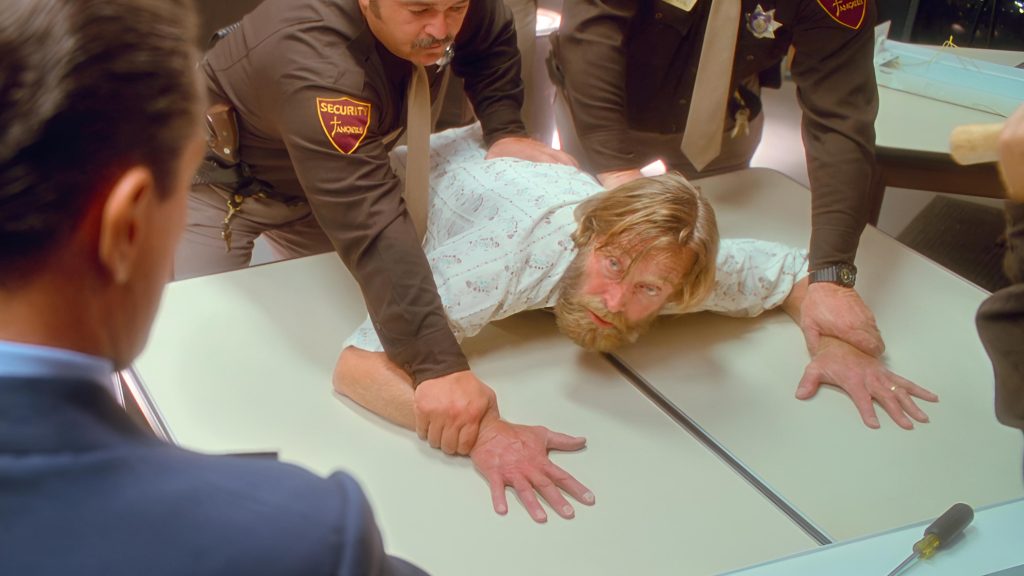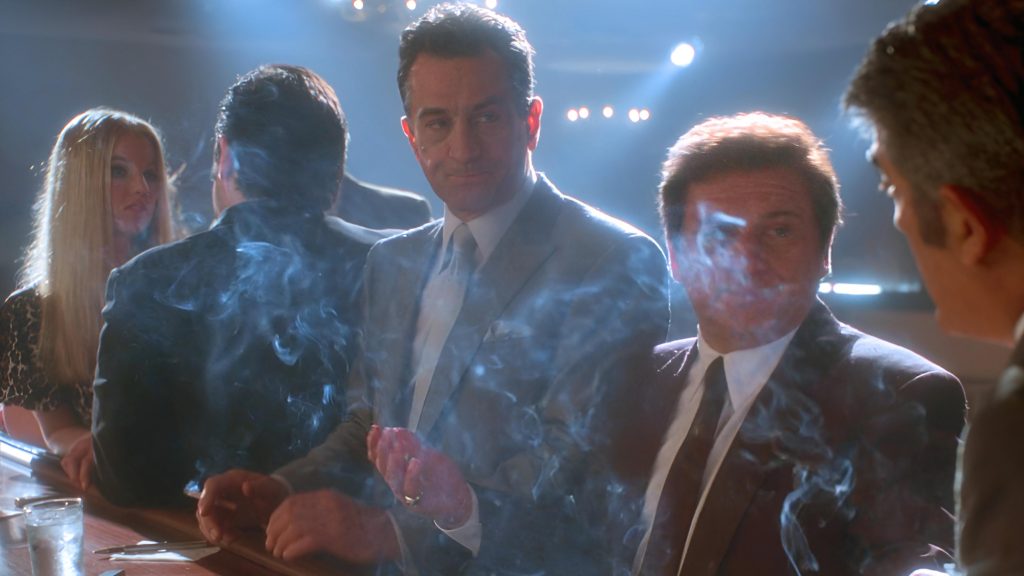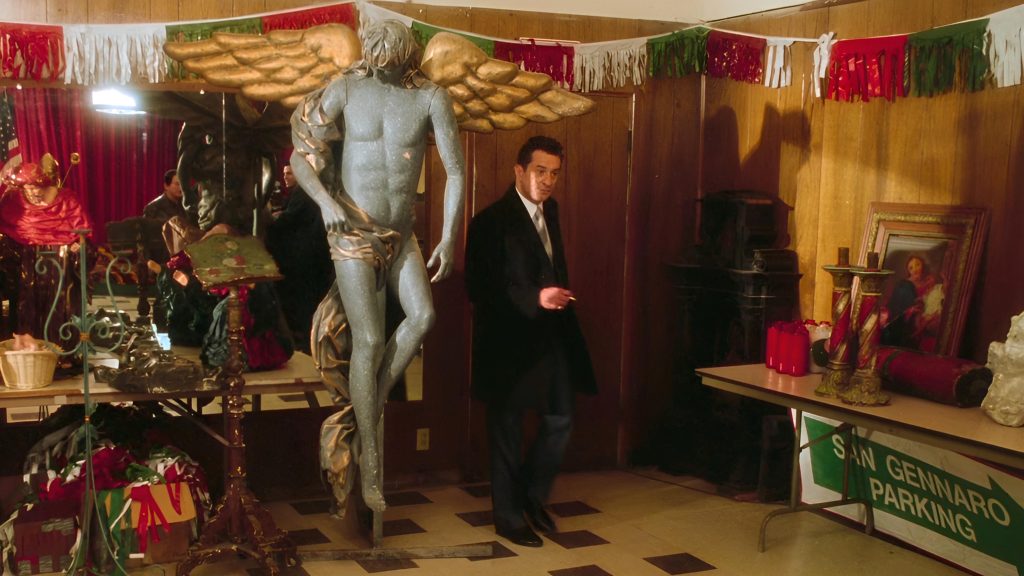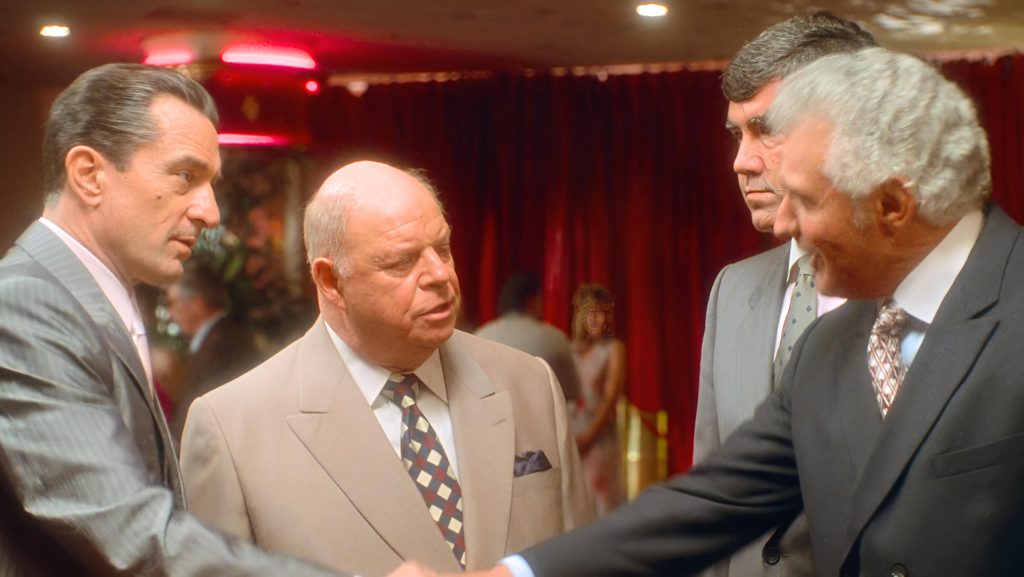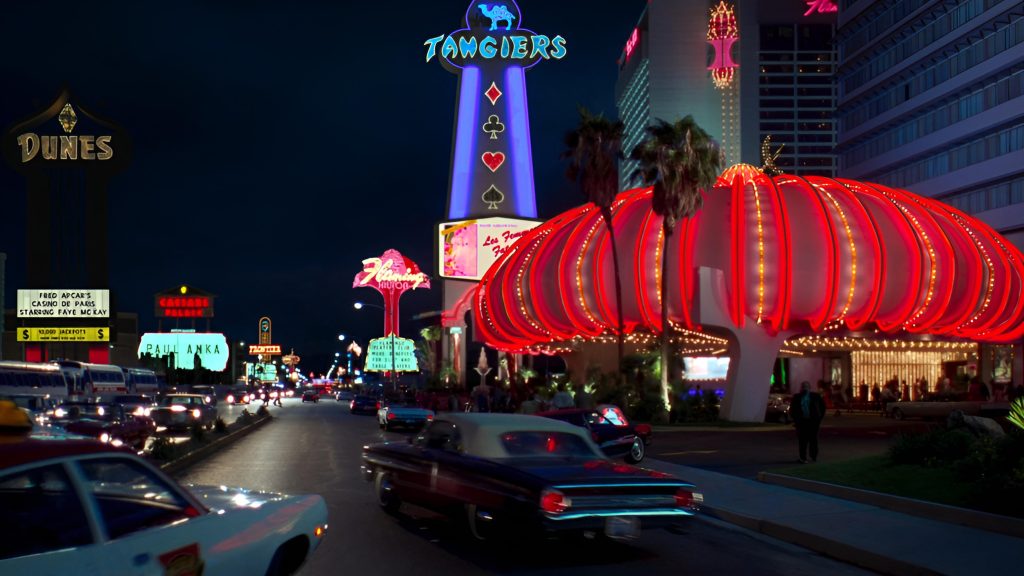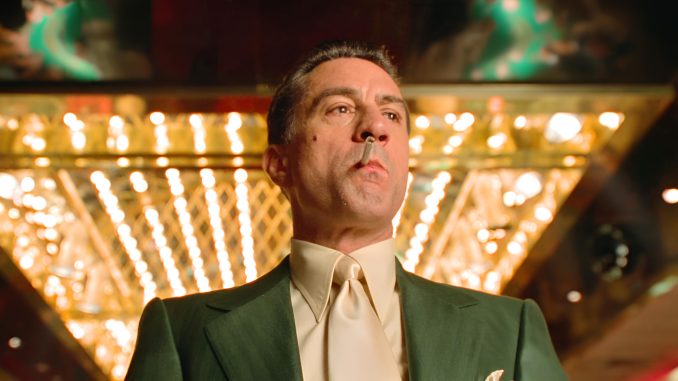
The House always wins
Casino (1995): 10 out of 10: Las Vegas in the 1970s was a shimmering mirage of glitz, greed, and good old-fashioned organized crime, and Casino dives headfirst into those neon-lit trenches with all the subtlety of a baseball bat to the windshield. Martin Scorsese, no stranger to stories of men undone by ambition, excess, and poorly timed phone calls, paints a sprawling portrait of a city run by suits on the surface and sociopaths in the shadows. It’s a world where everything is for sale. The narration flies fast and furious, the camera never stops moving, and the suits are amazing.
At the center of this operatic descent into the glittering abyss is Frank Rosenthal under the pseudonym Sam “Ace” Rothstein (Robert De Niro), a professional gambler with an encyclopedic knowledge of odds and an almost pathological need for control. He’s tapped to run the Tangiers casino. The Tangiers is a fictional stand-in for the Stardust for some Midwestern mobsters (Casino pointedly never utters the word Chicago even though that is exactly where everyone was from and/or was based).

Casino is based on Nicholas Pileggi’s Casino: Love and Honor in Las Vegas, which was written contemporaneously with the film. Much like Pileggi’s Goodfellas, the truth is stranger than any fiction. Unlike Goodfellas though, Casino starts with the words “adapted from a true story” instead of “based on a true story.” Apparently there were too many of the players still alive, kicking and not looking forward to having their dirty laundry on the big screen.
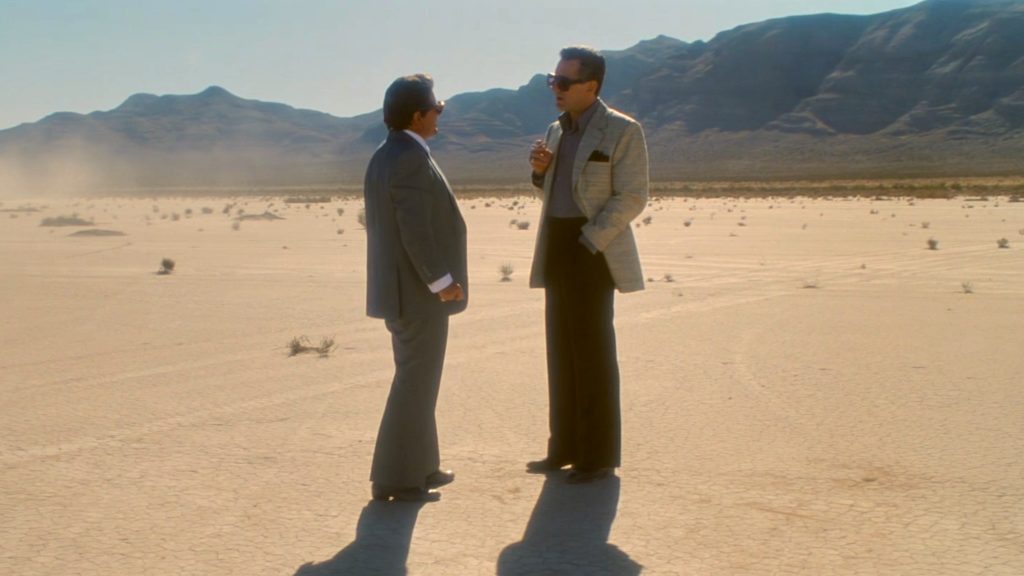
Everything in Casino is fictionalized. The corrupt Vegas official taking bribes and banging hookers is not future Nevada Senator Harry Reid; it’s um, someone else… yeah, that’s the ticket. It’s like an entire movie of Johnny Fontanes. It is a true story with the names slightly changed and some of the rougher edges filed off.
Still, the movie gets the gist even if you might think the entire mob is out of Kansas City.
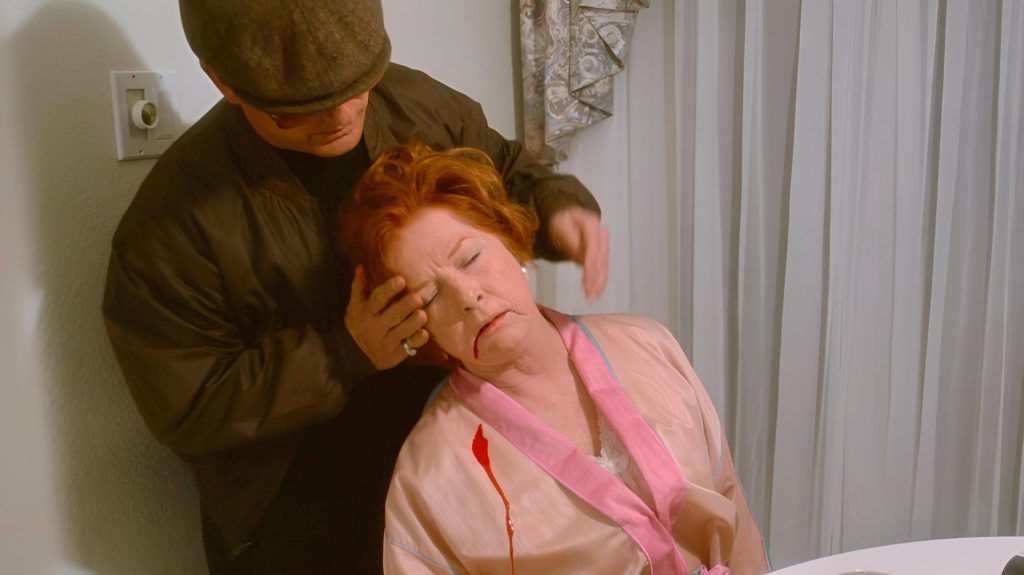
The Good
The Good: I love stories where the main character is a genius in one narrow field but an absolute idiot in everything else. Frank Rosenthal is a tragic case study of this. An amazing handicapper, a detail man of the highest order, and yet he marries a junkie hooker who’s still in love with her high school sweetheart (and has a daughter with him) and somehow thinks he can make that work. Moron. The movie changes a few of these facts to make Ginger more evil, and Frank more gullible, but it doesn’t make the decision any less stupid.
Then there’s the bit in the movie where De Niro fires Joe Bob Briggs (under his real name, John Bloom) despite the fact that Briggs’ character happens to be the brother-in-law of Clark County Commission chairman Pat Webb. Webb even gently suggests maybe finding the guy another, less critical job than slot supervisor.
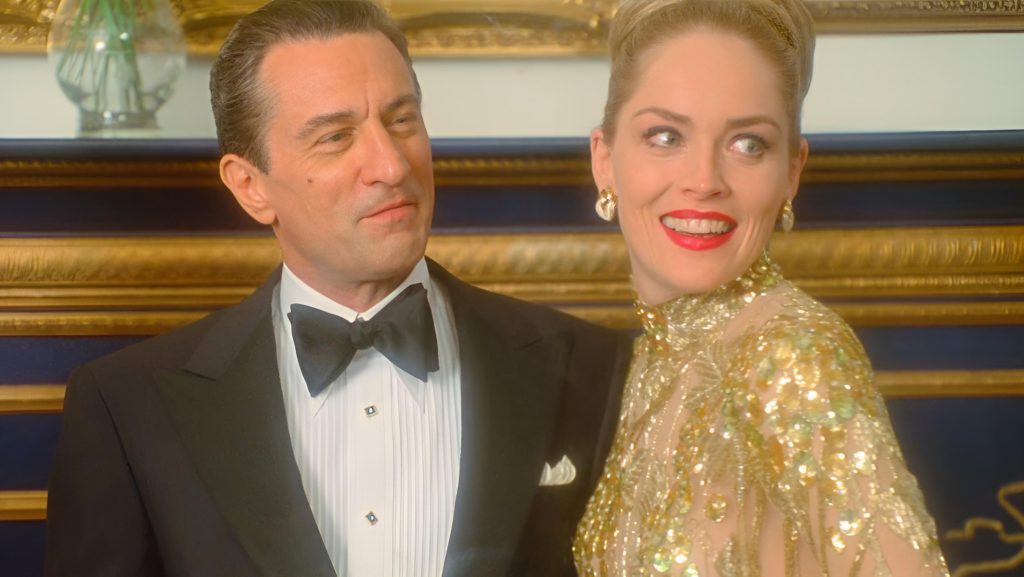
Most of us would take the hint, and the lifeline, and have a new Executive Director of Comp Optimization. Fun fact: stubborn, self-righteous De Niro doesn’t take the hint, and that decision, as much as anything else, sends the entire house of cards tumbling down. (As an aside, John Bloom is excellent as the hapless employee.)
Casino has some of the best costume designs ever. Seriously. Sharon Stone’s outfits are fantastic, but De Niro’s suits are on another level. Practically a character all on their own. Everyone has a favorite. (Mine’s the peach one he’s wearing when, let’s just say, things go boom.) The red-and-black number? Iconic. The blue one where he’s notably not wearing pants? Legendary. And the way his luxury watches and shoes match each suit? That’s pure obsessive-compulsive artistry. Perfection, like a blueberry muffin with twelve evenly spaced blueberries.
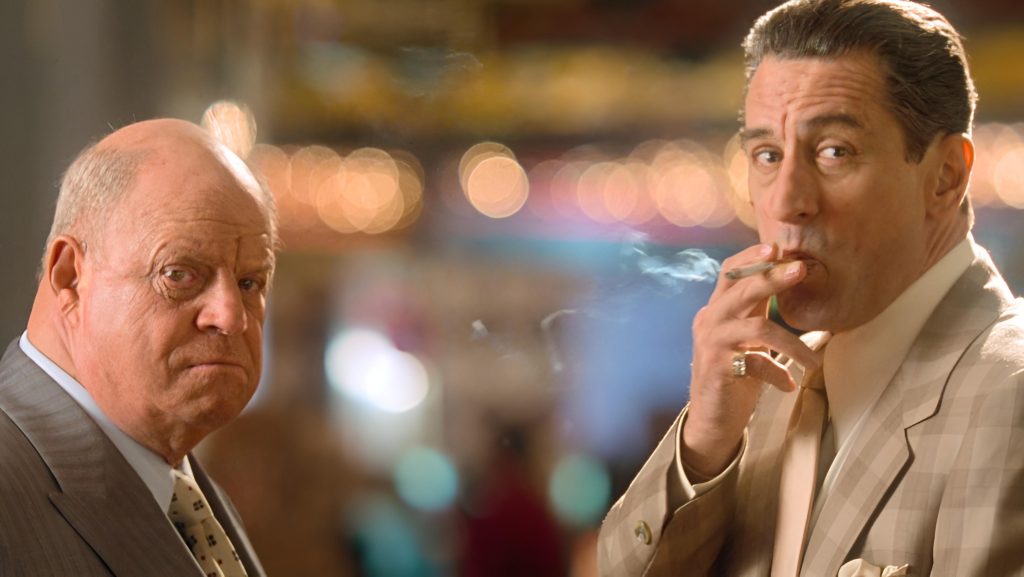
The other real advantage Casino has is the true story itself. In reality, Frank Rosenthal was running four large casinos for the mob (the Stardust, Fremont, Marina, and Hacienda). When Harry Reid turned down his license because of his over the top mob connections, the mob told Rosenthal to lie low.
Instead of lying low, Rosenthal really started his own talk show, where he was combative with the gambling commission. Talk about losing the plot. (You can see clips on YouTube. Some in which he interviews future Casino actor and then current headliner Don Rickles).
That is the beauty of real life. No screenwriter would be that daring.

The Bad
The Bad: I still think Sharon Stone should have won the Oscar. She took an unlikable character that the movie put its finger on the scale for protagonist hero reasons and she made it her own. She is easily the strongest performance in the film. Joe Pesci did a Joe Pesci. De Niro can do his character in his sleep, and it’s unclear whether James Woods knew he was in a movie. (I kid. James Woods is excellent in the movie. Still, the character is right in his wheelhouse.) Only Sharon Stone seems to really be stretching herself.
I love the narration. I have read Casino: Love and Honor in Las Vegas a few times, and it is a fantastic book. De Niro’s narration does an excellent job of explaining how the mob’s skim operation worked, among other wonderful details.
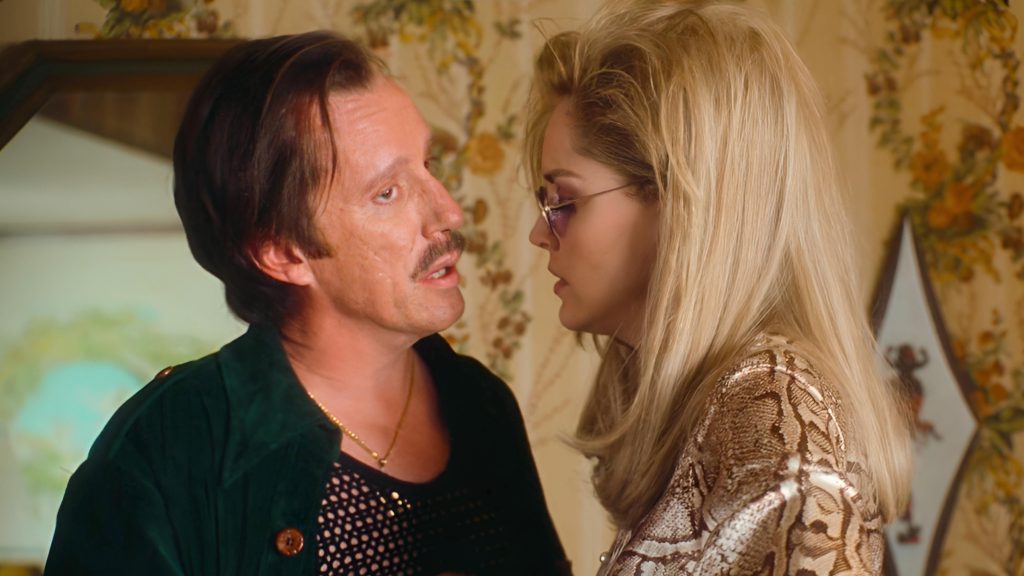
That said, your mileage may vary. Casino can seem more like a documentary than a drama for long stretches. There is a lot of tell in the movie.
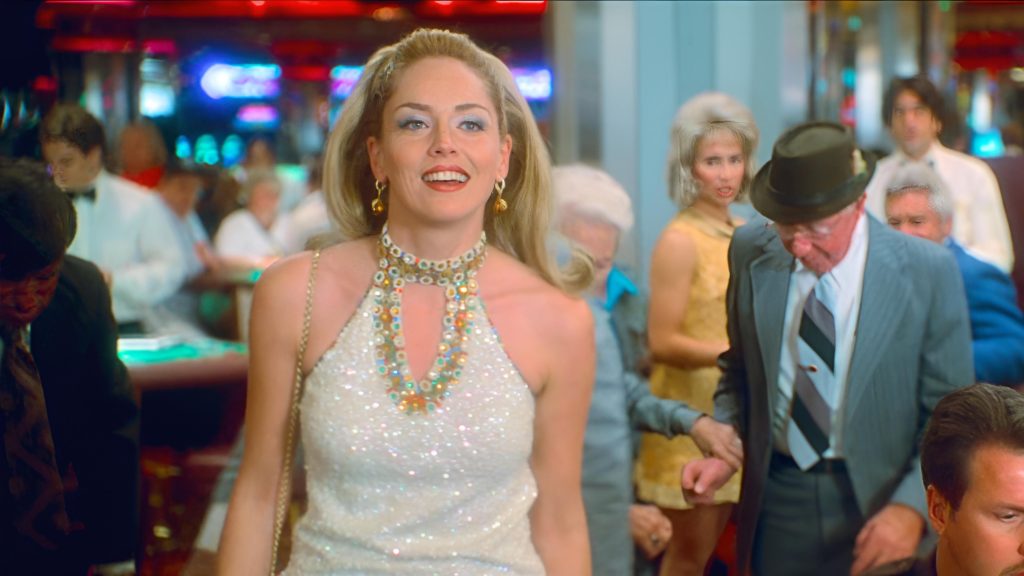
The Ugly
The Ugly: There is a scene very early on that’s basically a shot-for-shot remake of the “get your shine box” moment from Goodfellas. I assume it was meant as an homage. That was not a good idea. You’ve got Joe Pesci playing almost the same character as he did in Goodfellas; you don’t need to wink at the audience.
Pesci really was the perfect fit for Tony “The Ant” Spilotro, and anyone else in that role would’ve suffered by comparison. Still, it’s uncanny. He’s playing the same character with the same arc. In real life, Spilotro was killed almost exactly like Pesci’s character in Goodfellas, which makes me suspect that’s why Scorsese changed it for this movie.

In Conclusion
In Conclusion: So after Frank Rosenthal died, it quickly came out that he was a major FBI informant. It makes perfect sense. He walked away when everyone else ended up dead or in jail, and he kept all his money. Sharon Stone’s character was also revealed to be an FBI informant. Apparently, neither De Niro’s character nor Stone’s knew the other was working for the feds. I mean, that is the plot for a whole other film. A wacky comedy with mob hits.
We need a Casino 2, or a remake at the very least. Let’s get Scorsese away from his current snooze fests and get on this. We can call it Casino 2: The FBI Director’s Cut.
